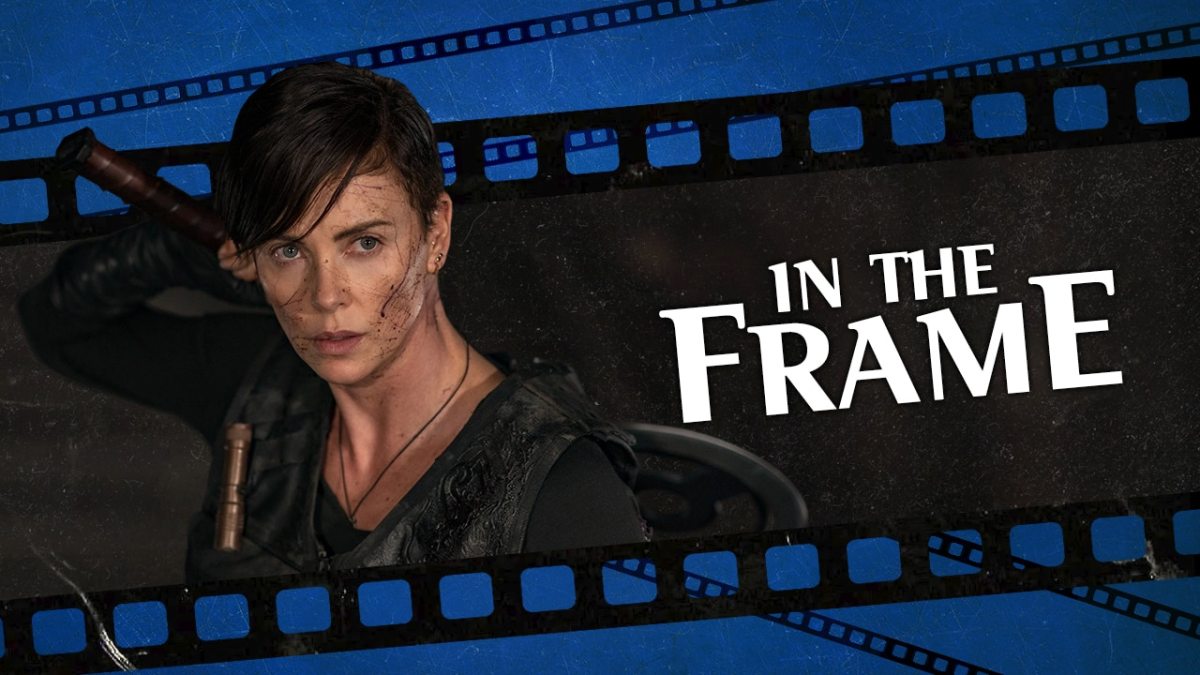This article contains spoilers for The Old Guard.
The Old Guard is an interesting genre hybrid, playing as a cross between a turn-of-the-millennium action film and a modern superhero blockbuster. Sometimes it splits the difference appreciably, such as a balletic slow-motion fight scene set to a song from the tie-in soundtrack album. Sometimes it feels more awkward, playing as an extended origin and clumsily laying sequel hooks.
At the same time, The Old Guard is fundamentally uneasy with some of the trappings and structures of classic superhero narratives. The film is built around a group of immortal warriors led by Andy (Charlize Theron) who have spent centuries using their powers to take on risky missions for the greater good. They save innocent lives, accepting missions that nobody else could accomplish.
However, Andy is haunted by a sense of inadequacy. Early in the film, she is confronted by news footage of the “ongoing crisis in Syria” and the “unrest in Haiti.” When it is suggested that the eponymous group of immortals has done “some good,” Andy rejects the assertion. “Have you been watching the news lately?” she asks. “Some good means nothing.”
The Old Guard is written by Greg Rucka, adapting the comics series that he created with Leandro Fernandez. Rucka is a writer who is intimately familiar with the mechanics of the superhero genre, having written extended and celebrated runs on characters like Batman and Wonder Woman. There is some self-awareness in The Old Guard, which seems to be ruminating on the genre’s core themes.

The Old Guard alludes to the paradox of superhero stories, the internal logic that insists that heroes must exist in a world recognizable to the audience… just with superheroes. This inevitably raises uncomfortable questions about what those heroes did in the face of real-world catastrophes. There have been many attempts to square this circle, and many of them are spectacularly ill-judged.
To be fair, The Old Guard doesn’t meet this challenge with particular grace. Given Andy’s misgivings and disillusionment, it seems fair to ask why Andy and her companions have decided that the single best way to make the world a better place is to spend eternity as hired mercenaries. After all, there’s no indication of how Andy could expect to prevent crises like those in Syria or Haiti as a soldier.
Early in the film, Andy demonstrates she has used her immortality to perfectly train her palate to the point where she can identify the origins of individual ingredients. Imagine that mind applied to centuries of medicine or science. More than that, if Andy really wanted to change the world, she’d arguably have greater influence with a little long-term investing followed by founding a super PAC.
The Old Guard acknowledges the uneasiness of this dynamic. The group’s newest recruit, Nile (KiKi Layne), discovers her gift when she is killed in action in the Middle East. Nile is horrified at the idea of an eternity of soldiering, of serving centuries in a military unit. “Is that what we’re supposed to be?” she demands. “I can’t be that.” Still, The Old Guard never quite answers her challenge.

This is because The Old Guard is an action movie rather than a character drama. It is not trying to be The Age of Adaline. This is a good thing, as the action scenes work well. So, it makes sense that the characters shrug off weightier questions. “Are you good guys or bad guys?” Nile asks the group. “Depends upon the century,” comes the response. “We fight for what we think is right.”
It’s a smooth evasion. However, The Old Guard is clearly trying to tap into something a little broader. Andy’s feelings of powerlessness resonate. It’s hard to argue with her when she states, “The world isn’t getting better. It’s getting worse.” Andy can try to do good, try to save lives, and realize that it seems to have little real impact on the general trend.
It’s hard to divorce this from the current political context. The current political climate has repeatedly been defined as one in which “nothing matters.” So much of modern politics is defined by regression and negation. Decades of hard-earned progress (in a variety of arenas) can be erased quickly. Studies suggest worrying (if understandable) disillusionment among younger voters.
Of course, The Old Guard cannot embrace Andy’s disillusionment. Andy is eventually confronted with the reality that her efforts do matter and that she has made a difference. Former CIA operative Copley (Chiwetel Ejiofor) has been tracing Andy’s journey through history and has mapped out the consequences of Andy’s small-scale interventionism.

The Old Guard argues that goodness resonates and ripples across time, that small deeds can pay huge dividends. Copley’s research demonstrates that the people Andy saved (or their descendants) went on to make significant contributions to humanity. “She saves a life,” he argues. “Two, three generations later, we reap the benefits.” It is a sweet sentiment.
It is also a facile resolution to Andy’s dilemma. The Old Guard makes an argument for morality rooted in consequentialism, that the value in Andy’s actions can be quantifiably measured using some calculus based on the outcome. Andy saved a stranger, that stranger made a medical breakthrough, and therefore, Andy deserves the credit for all the good that comes from that.
Is the audience to infer from Copley’s research that Andy never saved somebody whose descendants might become serial killers, arms manufacturers, slave owners, or any other people who contribute more harm than decency to the world? More to the point, would that matter? Would it be fair to blame Andy for saving that person, not knowing what the future would bring for their descendants?

This is a simplistic and feel-good answer to a difficult question, one that attempts to offer a straightforward illustration that Andy’s feelings of powerlessness are unjustified and unreasonable. The Old Guard trades in easy solutions, attempting to reassure its audience that goodness matters in a meaningful and measurable way. It’s an understandable impulse, even if it feels unearned.
A lot of modern pop culture grapples with the question of what it means to do the right thing in a universe that seldom rewards it. The Old Guard would be a more compelling film if it had the courage of its own convictions, if it argued (like Patty Jenkins’ Wonder Woman or Steven Moffat’s Doctor Who) that goodness and virtue matter for no greater reason than they are good and virtuous.
Andy is wrong to argue that “some good means nothing.” Some good means everything. It’s just not something that can be handily calculated using a simple mathematical equation. That is part of what makes goodness so tough in troubled times. No matter how hard The Old Guard might wish, it doesn’t get any easier as you get older.





